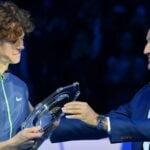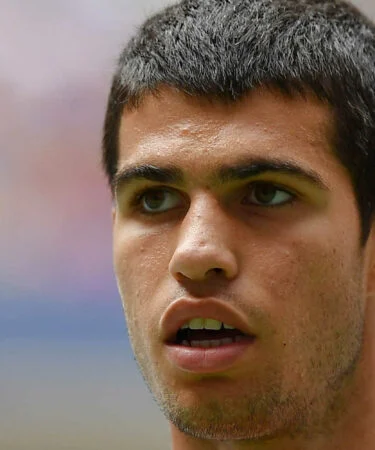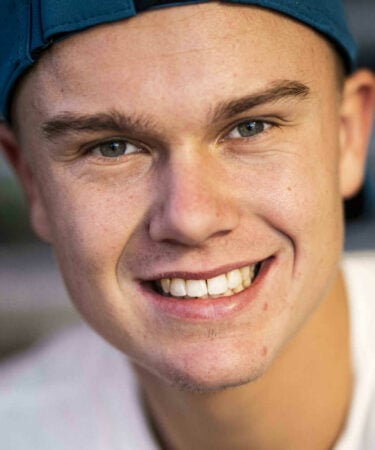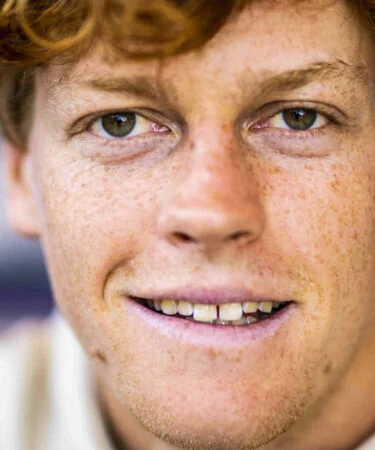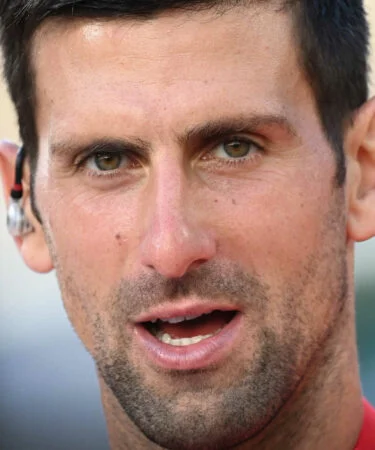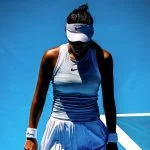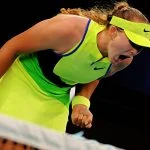The most relentless punctuation point of Novak Djokovic’s career
Despite a hectic group stage, Novak Djokovic concluded the ATP Finals with two displays of strength which, once again at the age of 36, suggest that the next generation is still lagging some way behind
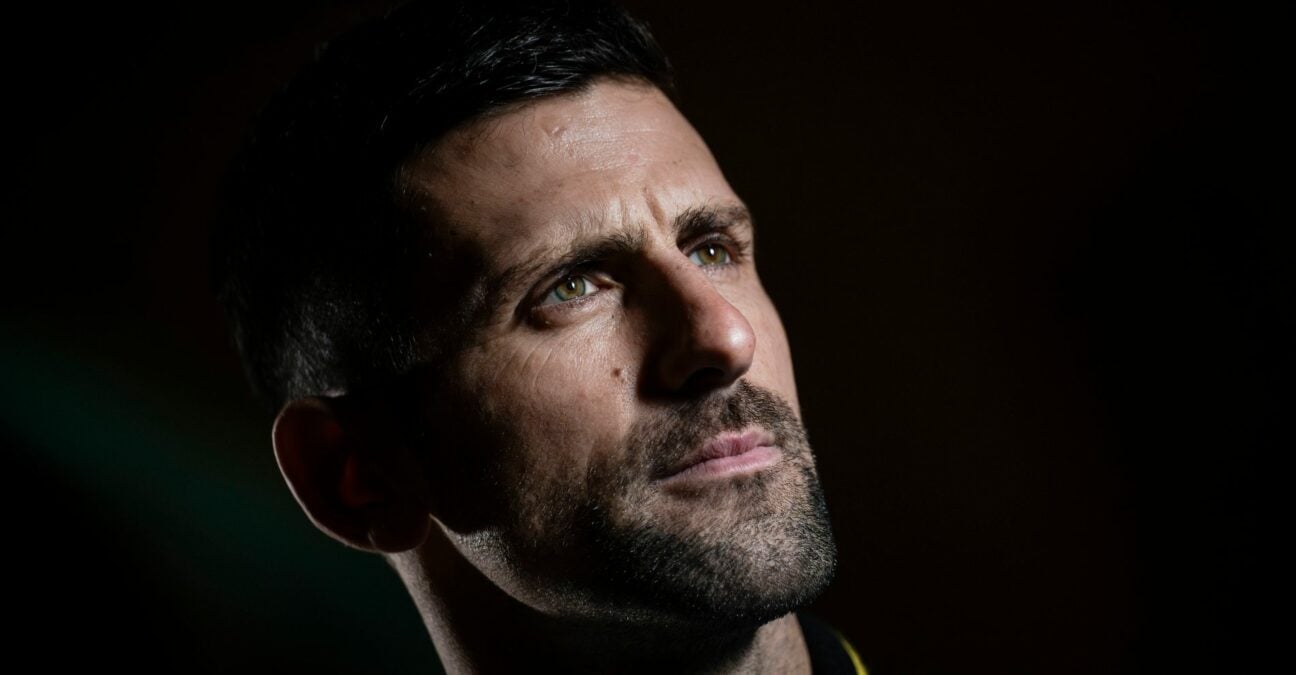 Novak Djokovic, ATP Finals 2023 – © Imago / Panoramic
Novak Djokovic, ATP Finals 2023 – © Imago / Panoramic
Novak Djokovic doesn’t exactly have the knack of getting everyone to agree. With his personality, his choices and his taste for confrontation, he is an almost unique example of a first-class champion capable of being acclaimed for his performances and booed for his attitudes, several times on the same day, in front of the same audience.
In the final of the ATP Finals, where he overcame against Jannik Sinner (6-3, 6-3), it happened again. As it had the day before against Carlos Alcaraz. As at the Rolex Paris Masters, where it also fuelled his run to victory.
But if we take the figurative meaning of the phrase “to get everyone to agree”, then Djokovic has become a master in the art of silencing the audience with his famous grin of satisfaction. The 2023 season may not be the most impressive of his career from a strictly mathematical point of view – that’s debatable, and we’ll come back to that. But in terms of storytelling, in terms of the messages sent out, in terms of both content and form, it is a breathtaking act of authority, probably unprecedented in modern tennis.
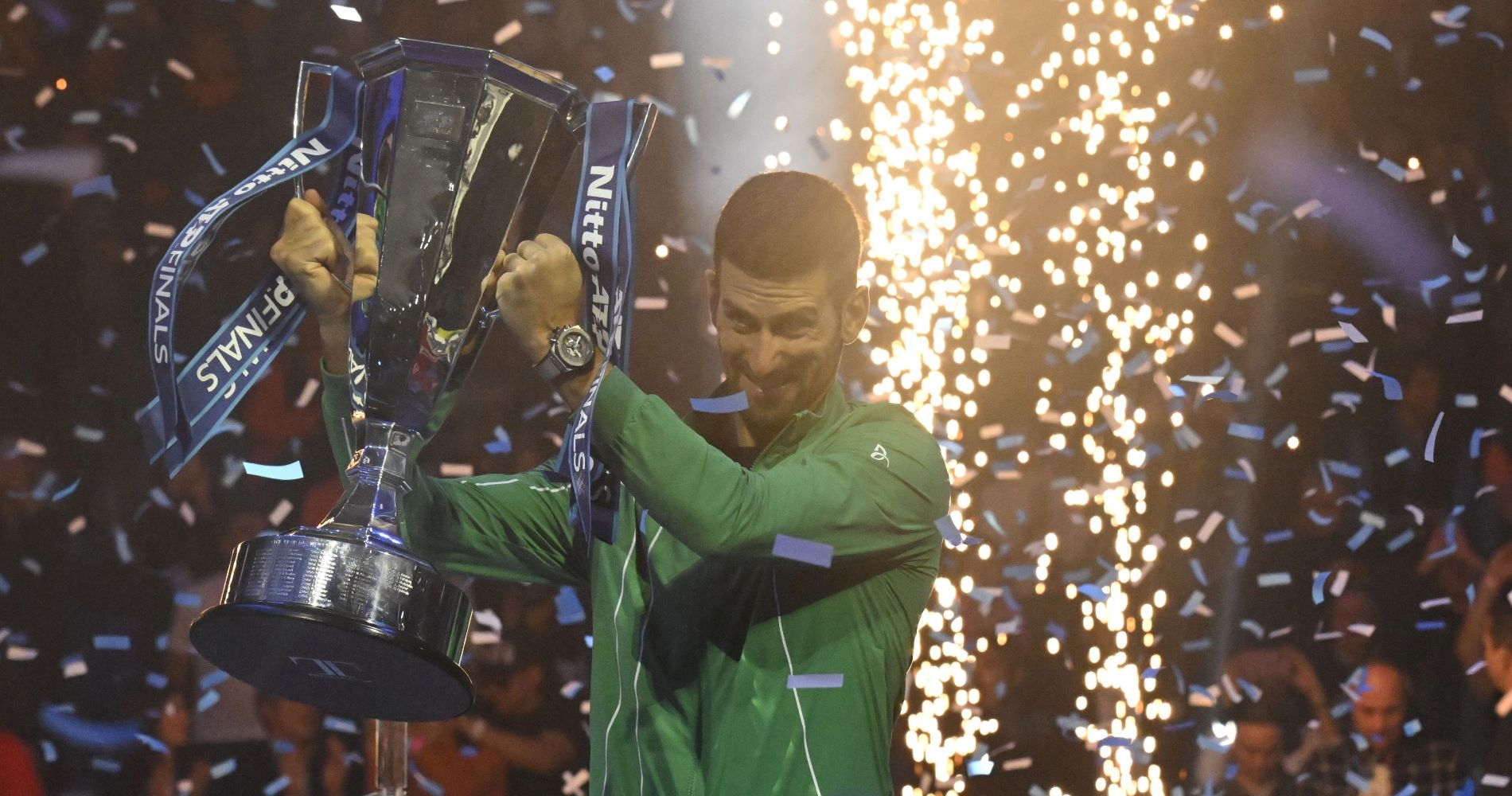
Three out of four slams for fourth time
In 2023, as in 2011, 2015 and 2021, Djokovic won three of the four Grand Slam tournaments. As in 2015 and 2021, he reached the final of all four major tournaments and missed out on the Grand Slam by a hair’s breadth. As in 2015, he added the Masters to his panoply of near-perfect seasons.
In 2023, can his record of 55 wins and 6 losses at the age of 36 compare with his 82 wins and 6 losses in 2015, the year he turned 28? Eight years older and with a few signs of wear and tear that the Serb no longer denies since Roland-Garros, Djokovic is practically playing a different sport, one that allows him even to drop Masters 1000 events. And like those artists or martial arts masters who hone their craft season after season in an almost impalpable but implacable way as they practice, he controls his tennis like never before.
The narrative arc of this breathtaking 2023 season began exactly one year ago in the same place, in Turin, at the end of the 2022 season. After a dull year due to his vaccination status, which saw him play two Grand Slams out of four but lose the world No 1 one spot to Alcaraz, the Serb took communicative care to win the ATP Finals without conceding a single defeat. He had come to prove that he was the strongest. This was verbalised. And the words were followed by deeds, even if an injury to the Spaniard postponed the final explanation.
One year on, Djokovic retains his trophy, sets a new record for the number of final victories in this tournament (seven), and dismisses out of hand all the talk in the media and on social networks about how he has been challenged this season. Tennis has lost the Big Three and is now living with its Big One, we wrote in June 2021. Since then, Djokovic has won five out of 10 majors and two out of three ATP Finals; Alcaraz (2 majors), Nadal (2 majors), Medvedev (1 major) and Zverev (1 ATP Finals) have shared what Novak didn’t take.
Dazzling meaning to his wins in Turin
Novak Djokovic, however, is not invincible. He has lost six times this season – including to Dusan Lajovic in Banja Luka. He missed out in the Wimbledon final with two backhand errors that were unimaginable for a player of his stature, when he had the opportunity to go up two sets to nil against Alcaraz. He lost to Sinner in the group stage at the ATP Finals. And if Holger Rune had had a bit more hair on his chin when he led 4-3 with break point in the third against Sinner on Friday, we’d be writing this evening about a Masters semi-final abandoned to the new generation.
It is precisely because he is not unbeatable that the meaning of his victories in Turin is dazzling. Since his memorable battle with Alcaraz in the Cincinnati final, which he turned around with his refusal to accept defeat more than any other resource, he has not lost when the summit is approaching and oxygen is running out. On his heights, Djokovic has not been followed for five months. “I knew that if he qualified for the semi-finals, he would win the tournament,” said his coach Goran Ivanisevic on Sunday evening, and that was clearly the mood in Turin this weekend.
Based on TennisViz statistics, nobody played tennis better in 2023 than Djokovic did at the ATP Finals Championship match. Including the semi, he played in two of the four best matches of the season (note: Wimbledon was the only Grand Slam monitored).
Another statement for the younger generations
Before the semi-finals of the ATP Finals, Djokovic’s last three defeats on the tour had come at the hands of the three twenty-somethings who dream of following in his footsteps: Rune in Rome, Alcaraz at Wimbledon and Sinner at the ATP Finals.
In Turin, Djokovic made things clear by dominating them one by one. He confirmed against Rune the victory he had inflicted on the Dane in Bercy (giving himself a eight season at the top of the tennis world), and rolled over Alcaraz and then Sinner on Saturday and Sunday. These two victories, 6-3, 6-2 and 6-3, 6-3, left both players with the attitudes of battered boxers that will weigh heavily when they meet again in 2024.
Sometimes the most impressive scenes of domination are played out off the court. And in the basement of the Pala Alpitour, where the players come to confide in the media after their matches, Djokovic had practically allowed everyone to watch the film being written over the last 24 hours.

Djokovic: “No, I won’t be his supporter”
On Friday, after beating Hurkacz to keep his qualification hopes alive, Djokovic appeared grumpy, clearly fed up that his fate depended on someone other than himself. If Rune beat Sinner, the Serb was out.
After crushing Alcaraz in the semi-finals in a way that few would have predicted after the Spaniard’s 6-4, 6-4 win over Medvedev and the knife-edge duels the two men had played in the past, Djokovic appeared with an aura of hope destroyer, of a champion in the process of exercising his full potential, certain that he would seize his chance the next day.
In fact, on Friday, when he looked so vexed not to have knocked out his group, Djokovic uttered the most decisive phrase of his week. Two hours earlier, Zverev had indicated that he would be Medvedev’s No 1 supporter against Alcaraz with a view to his future qualification. Asked if he felt the same way about supporting Sinner, Djokovic didn’t even let his interviewer ask the question. “No, I won’t be his supporter. I’ll always have the Davis Cup to finish the season, that’s what I’m thinking about at the moment.”
Novak was simply one step ahead. You don’t declare yourself a fan of a player you are likely to meet again in the final two days later, with revenge to take for a recent defeat; you ask him to show what he can do.
On Sunday, Sinner came. Djokovic saw. And as is often the case, he conquered.

